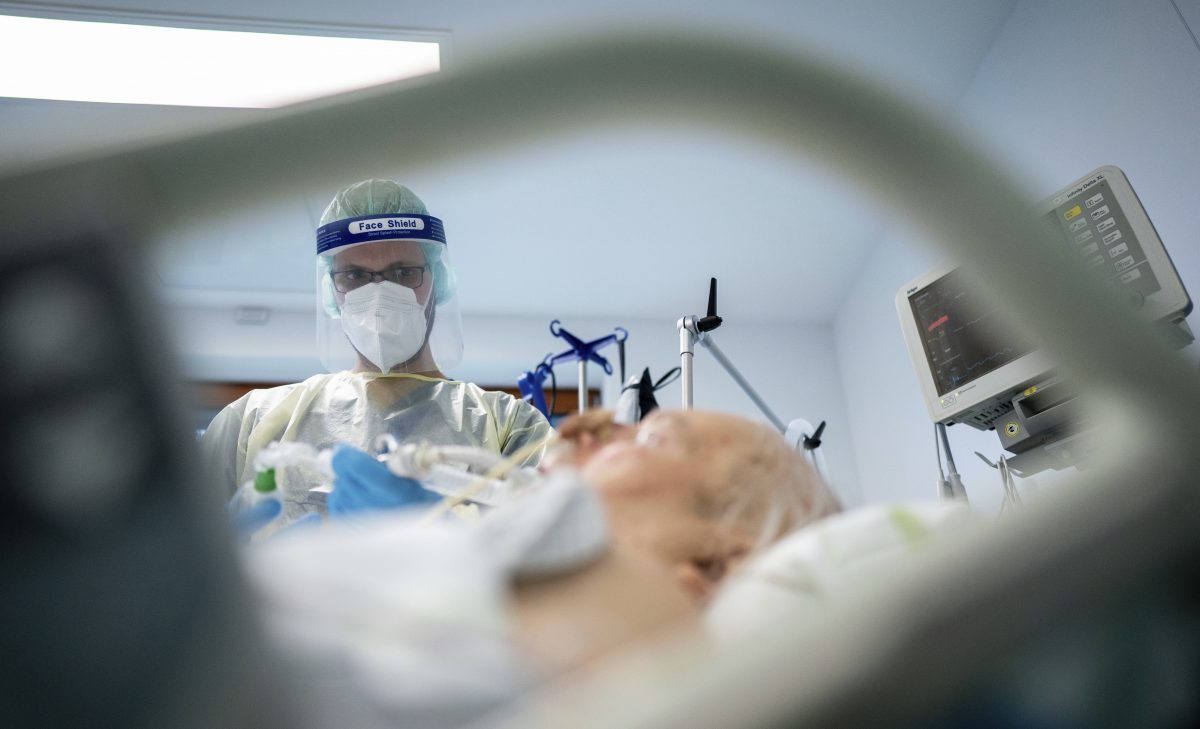One in five covid-19 patients are diagnosed with a mental illness within three months

The news: There have been increasing numbers of anecdotal reports of a link between surviving covid-19 and developing mental health problems in recent months. Now we have some numbers to back those reports up. A new study, published in Lancet Psychiatry, has found that almost one in five people who have had covid-19 go on to be diagnosed with a mental illness within three months of testing positive.
How the calculations were made: The researchers from Oxford University and NIHR Oxford Health Biomedical Research Centre gathered the electronic health records of 70 million patients in the US, including 62,354 who had been diagnosed with covid-19 from January 20 to April 1 2020 but did not need to be hospitalized. They found that 18% of patients were diagnosed with a mental health issue in the 14 to 90 days after a covid-19 diagnosis.
To see how covid-19 patients compared to those suffering with other issues, the team compared data with six other conditions (including flu and fractures) over the same time period. They found that the likelihood of a covid-19 patient being diagnosed with a mental health issue for the first time was twice that of those with other conditions. Anxiety disorders, insomnia, and dementia were the most common diagnoses.
Additionally, people with a pre-existing mental health condition—specifically attention deficit hyperactivity disorder, bipolar disorder, depression, or schizophrenia—were 65% more likely to be diagnosed with covid-19.
The implications: We have been warned of an oncoming tsunami of mental health problems due to the pandemic for months now. “We know from previous pandemics that mental health difficulties usually follow in survivors, and this study shows the same pattern after Covid-19, so it is not unexpected,” says Professor Til Wykes, Vice Dean for Psychology and Systems Sciences at King’s College London’s Institute of Psychiatry, Psychology and Neuroscience, who was not involved in this research.
Either way, we ought to prepare for more mental health problems across society in the coming months and years. “This is clearly the tip of an iceberg. We need to develop as many different, accessible forms of mental health support as possible,” says Wykes.
Deep Dive
Biotechnology and health
How scientists traced a mysterious covid case back to six toilets
When wastewater surveillance turns into a hunt for a single infected individual, the ethics get tricky.
An AI-driven “factory of drugs” claims to have hit a big milestone
Insilico is part of a wave of companies betting on AI as the "next amazing revolution" in biology
The quest to legitimize longevity medicine
Longevity clinics offer a mix of services that largely cater to the wealthy. Now there’s a push to establish their work as a credible medical field.
There is a new most expensive drug in the world. Price tag: $4.25 million
But will the latest gene therapy suffer the curse of the costliest drug?
Stay connected
Get the latest updates from
MIT Technology Review
Discover special offers, top stories, upcoming events, and more.